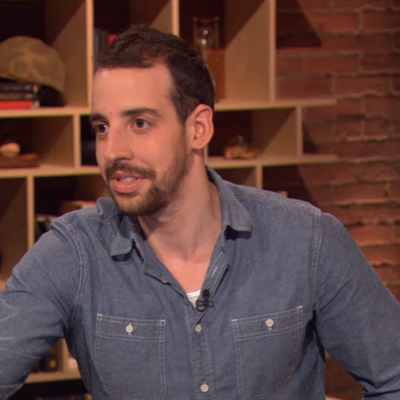A Researcher May Have Found an Incredible Health Benefit of Rollercoasters

By:
A Reddit thread posted in March of 2016 titled "Kidney stone passers of Reddit: how painful was your experience?" lists the following as the top response:
"It's like flossing your urethra with barbed wire."
Yikes.
But, there's a new report in The Atlantic that might provide some relief to the estimated 300,000 Americans who suffer from kidney stones.
Dr. David Wartinger, a professor emeritus at Michigan State University, has found a possible solution to the intense pain caused by passing kidney stones: rollercoasters.
The Atlantic's James Hamblin provides a concise, fascinating report of how Wartinger made his discovery, but here are the basics: Wartinger found that East Lansing residents who made the trip to Disney's Magic Kingdom each spring were coming back home with fewer kidney stones. Wartinger posited that the centripetal force of the rollercoaster ride might be drawing the stones out of patients' kidneys and through their urethras.
Not satisfied with that anecdotal evidence, Wartinger constructed a 3D printed renal system, filled it with real urine and kidney stones, and took it for a series of test rides at the Big Thunder Mountain rollercoaster at the Magic Kingdom in Orlando. Per the Atlantic, Wartinger found that "the stones passed 63.89 percent of the time while the kidneys [rode] in the back of the car. When they were in the front, the passage rate was only 16.67 percent."
Wartinger, who previously wrote about his experiment in the the Journal of the American Osteopathic Association in October 2016, is now hoping to test the rollercoaster theory in a full clinical trial.
Why does this matter?
Let's go back to Reddit for another description of what it's like to suffer with a kidney stone.
"It feels like I have to pee really bad constantly but can't get any relief, and there's crippling pain in my lower abdomen and back. I basically just lay there crying, sometimes on the tile floor in the bathroom because the coolness feels a little better. Oh, on top of that, I vomit constantly until I can get to the ER and get anti nausea meds."
You'll note that the experience is recalled as not only painful, but lengthy. If Wartinger's theory is proven consistently effective, it could provide a solution that is, at the very least, less time consuming.
It's also cheaper than the alternative.
HealthDay reports that who don't pass their stones in the painful, old fashioned way have three treatment options available to them: shock-wave lithotripsy, in which magnetic waves are used to crush the stone; Ureteroscopy, in which a tube is inserted into the urethra to crush the stone; and Percutaneous nephrolithotomy, which uses a very thin camera to search inside the urinary tract system to locate and remove the stone.
Each of these sets the insured patient back about $100 to $150 in co-pays, but can add tens of thousand of dollars to the nation's overall healthcare costs.
On top of that, HealthDay reports that there are significant odds that each of those outpatient procedures might require follow up care due to complications. "One in seven of the patients experienced complications that required hospitalization or emergency care within 30 days of treatment," HealthDay reported, with the average cost of follow-up care around $30,000.
So, how significant could Wartinger's research prove to be? Let's take a look at one more Reddit comment:
"My uncle was in so much pain when he passed his that he ripped the sink off the wall at the hospital."
Here's hoping Wartinger is granted that trial.
